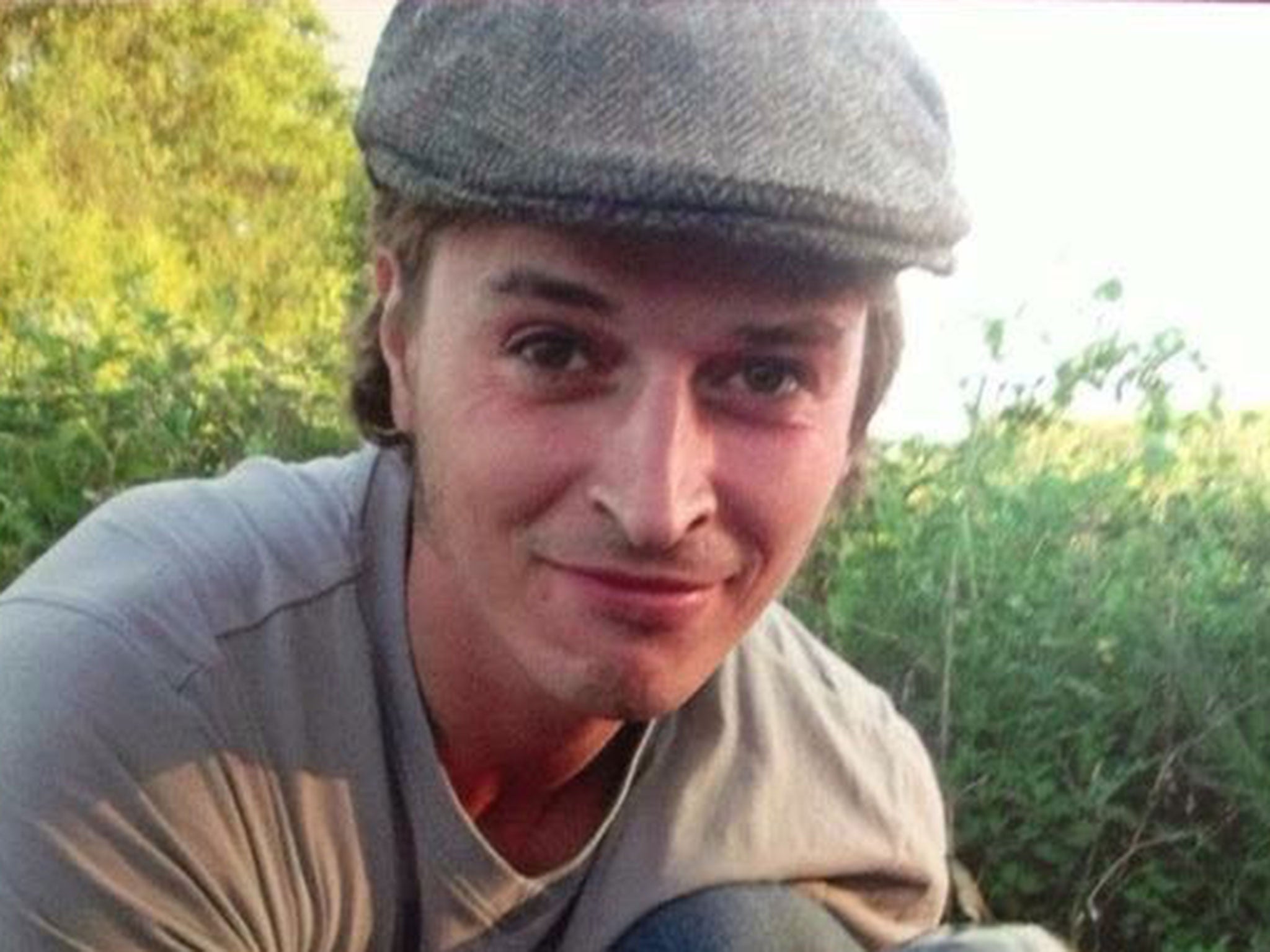Police officers will not be prosecuted over death of man 'restrained during epileptic seizure'
Father of Duncan Tomlin calls for 'accountability' over his son's death

No charges will be brought against five police officers who restrained a man as he allegedly suffered an epileptic seizure and later died.
Duncan Tomlin’s partner and relatives asked the Crown Prosecution Service (CPS) to review its decision not to take action against the officers from Sussex Police.
But prosecutors said there was no “realistic prospect of conviction”.
Mr Tomlin fell into a complex partial seizure as he spent the evening of 27 July 2014 with his girlfriend and friends in Haywards Heath, West Sussex.
A neighbour mistook his shouting for an argument and called the police, his relatives said, adding that officers arrived to find the 32-year-old in the garden.
“His girlfriend told the police he was having a seizure, she shouted at them to stop, but they ignored her,” his aunt told The Independent at the time.
Mr Tomlin’s family said he had committed no crime and accused police of using excessive force. They said the officers had unnecessarily loaded him into a police van, where he went into cardiac arrest shortly afterwards.
Although the officers attempted CPR and called an ambulance that took Mr Tomlin to hospital, he never recovered consciousness and died two days later.

His father, Paul Tomlin, said the family is hoping for a pending inquest into his death to give answers.
“To say I am bitterly disappointed by the CPS’s decision is an understatement,” he said. “Although, I am not surprised by it given how few prosecutions are brought against police officers.
“We, as a family, are now focusing on the forthcoming inquest. I hope that these proceedings, and any disciplinary proceedings, will help to provide answers and accountability in relation to Duncan’s death.”
Campaigners from Inquest, which is supporting the family, said Mr Tomlin’s death was preventable.
Deborah Coles, the charity's director, said: “The routine lack of criminal action following police deaths is the source of great anger and pain for families who expect and demand a system capable of delivering justice and accountability.“
The Independent Office for Police Conduct (IOPC) investigated the actions of five police officers who attended the incident – a sergeant and four constables – and referred the case to the CPS to consider charges in 2016.
The watchdog confirmed Mr Tomlin had been restrained and became “unresponsive” in the police van shortly after it pulled off and was not breathing.
As part of its own investigation, the IOPC said it had found a case to answer for gross misconduct against the five officers.
Potential disciplinary proceedings are still being considered by the body and Sussex Police.
“The family and partner of Duncan Tomlin requested a review, under the Victims’ Right to Review scheme, of our decision not to bring charges against five officers from Sussex Police in relation to his death in 2014,” a CPS spokesperson said.
“The review was carried out by a senior specialist prosecutor not involved in the earlier decision. We have concluded that the original decision was correct and the evidential test, as set out in the Code for Crown Prosecutors, is not met, meaning there is not a realistic prospect of conviction.”
